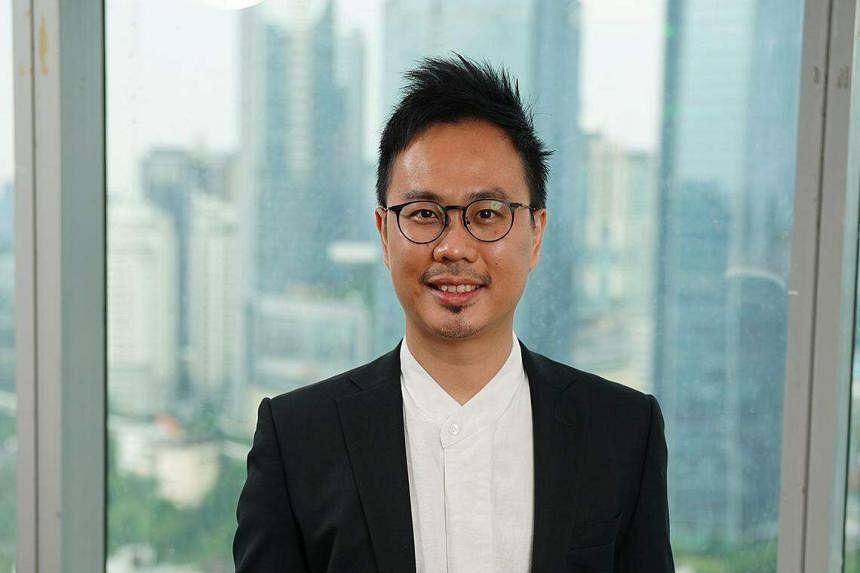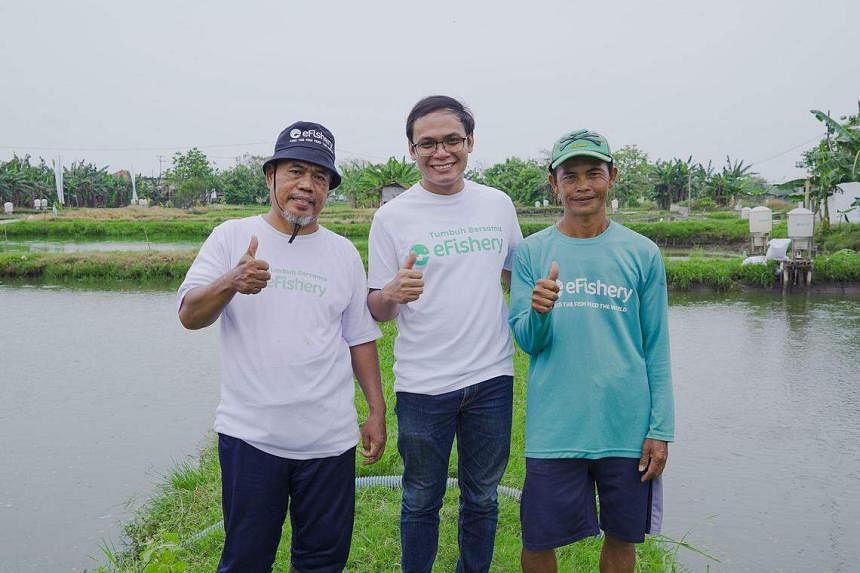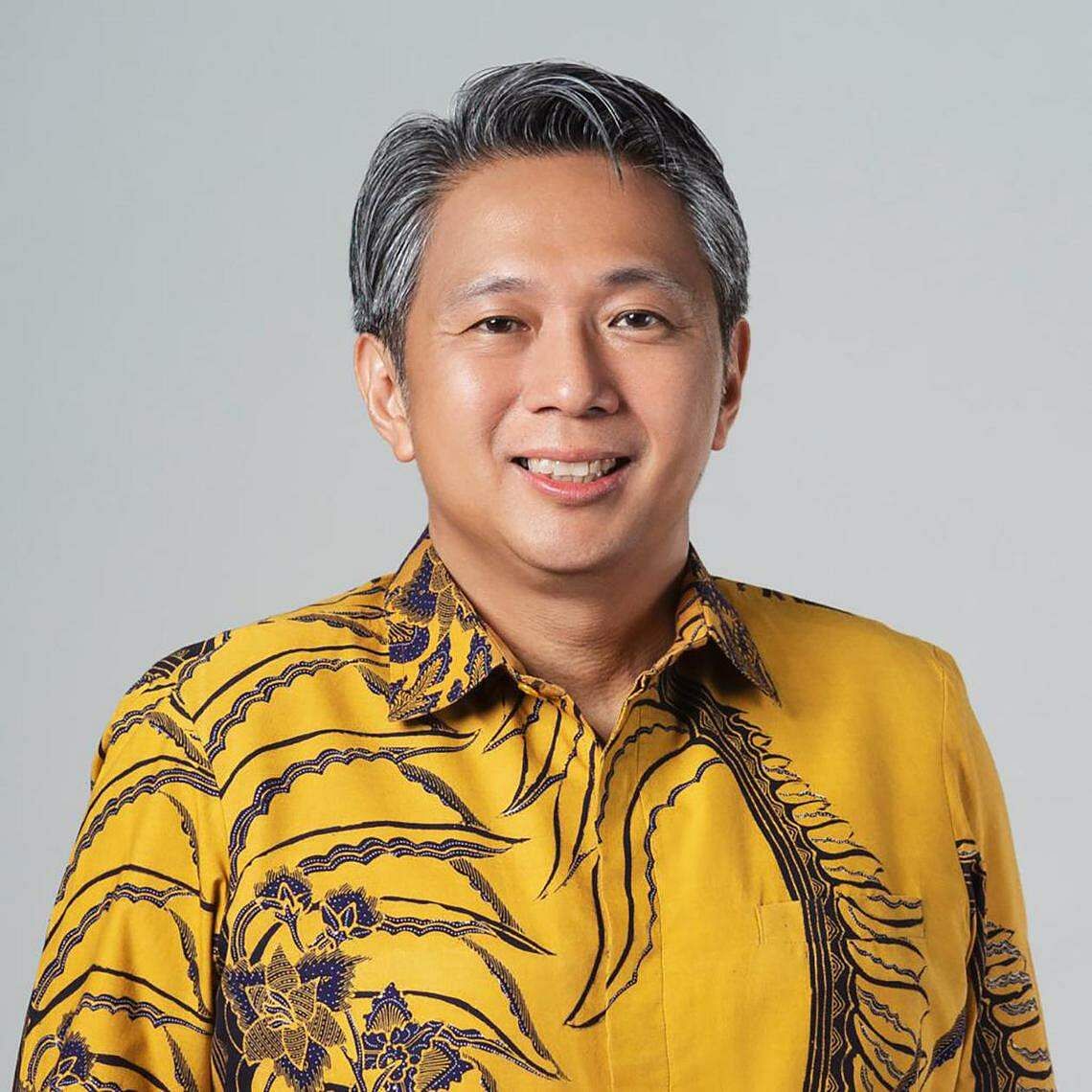JAKARTA – A new breed of young, self-made tycoons has struck gold by tapping unfulfilled market gaps in Indonesia. Driven by a commitment to social impact, these entrepreneurs have flourished while uplifting and building mutual prosperity for their communities.
Here are some success stories.
Trading up
Mr Wellson Lo and his football buddy Johny Susanto, who met as students in Melbourne, co-founded what is now one of Indonesia’s three largest stock brokerages by number of investors.
They started Stockbit in 2012 as a social analytics platform, with the aim of democratising capital market investment financial data in a country with low investing literacy.
But a year into operations, Mr Wellson realised they faced two main hurdles.
One was that investment was not a typical topic in everyday conversations among Indonesians in general. “It was totally different from working adults in Singapore or Australia, who talk about investment on a daily basis,” Mr Wellson, 39, told The Straits Times.
The second challenge was that venture capitalists and global investors back then were keen only on start-ups that served the mass market, such as e-commerce and ride-hailing companies.
“It was very hard to do fund raising in the early years... as venture capitalists shunned niche markets like what Stockbit operated in,” said Mr Wellson, who started his entrepreneurial journey after quitting his job as a senior audit associate at KPMG Singapore in 2009.
Confronted with these two challenges, Mr Wellson reached out to an IT professional friend and started to build a social network into Stockbit for like-minded people to share their own stock analyses and discuss news that impacted the markets in real time.
In 2015, Stockbit finally managed to raise seed funding from Jakarta-based venture capital firm Ideosource. The undisclosed amount was to further develop its mobile app, recruit new talent and beef up marketing for the platform, which also added brokerage services in 2021.
This successful effort also gave them the momentum for successive rounds of fund raising.

In its sixth year, Stockbit expanded into the wealth management business when it established a platform called Bibit, a robo-adviser app that helps people build a personalised investment portfolio. Half of the mutual fund transactions in the country are currently done on Bibit.
Investing on both Stockbit and Bibit starts from 10,000 rupiah (90 Singapore cents), and the two platforms have more than five million mostly millennial users combined.
“Stockbit was built as a social forum to meet like-minded people to discuss, exchange ideas about investment, stock picking and other economic issues that affect investment. It helps the masses trade smarter to build wealth,” Mr Wellson said.
He added: “If you develop a good product, build an experience that your users like, while you focus, concentrate and persevere, the result will usually be excellent and beyond your expectations.”
Rural venture nets success
As a college student, Mr Gibran Huzaifah often pondered how emerging tech companies innovated to address problems faced in the cities, changing the way people buy and sell goods and services.
It struck him that no one seemed to care about problems in rural areas.
“Important sectors such as agriculture, aquaculture, barely saw digital innovations. I told myself that problems in these sectors need solutions,” said Mr Gibran, 33, who founded Bandung-based fish and shrimp farm technology company eFishery in 2013.
Indonesia is the world’s second-largest seafood producer after China, but fish farming has been plagued by low margins.
This is partly due to inefficient, manual feeding techniques used for generations. Fish feed accounts for 80 per cent of fish breeders’ costs, said Mr Gibran.

Overfeeding eats into profits – and pollutes the water, affecting the health of fish – while underfeeding results in slow-growing fish.
To address this issue, Mr Gibran – who used to farm catfish himself as a biology student at the Bandung Institute of Technology to pay for his school fees – devised automated feeders.
These dispense the right amount of feed into ponds based on how hungry the fish or shrimp are, which is gauged by their movements. The feeders are rented to fish breeders, who save up to 28 per cent on feeding costs, Mr Gibran said.
An initial hurdle, however, was convincing the breeders that the tools would benefit them.
“They finally wanted to try, not because they believed in such technology, but because they pitied me for my perseverance in persuading them. Introducing the Internet of Things technology to fish breeders was very challenging because they were not Internet users,” said Mr Gibran, who taught farmers how to create an e-mail and a social media account and search for information on YouTube to help open up their minds.
His company turned profitable in 2018. Today, eFishery has partnered with breeders that operate one million ponds and expanded into other activities, including financing fish feed purchase and buying fish and shrimp from farms it services for export to the United States and China.
The world’s first aquaculture unicorn – valued at US$1.4 billion – is now expanding to India, with more countries in Asia and the Middle East in its sights.
Business that has a social impact
Indonesia’s first company to sell carbon credits worldwide, Rimba Makmur Utama, was sparked by a “crazy idea” from Mr Dharsono Hartono, 50, and Mr Rezal Kusumaatmadja, 54.
Through restorative initiatives and by actively preventing the deforestation and degradation of 157,000ha of carbon-rich peat forest it manages in Kalimantan, the company ensures that 450 million tonnes of carbon remain locked in the ground instead of becoming pollutive emissions.
Called the Katingan Mentaya Project, the world’s largest nature-based solution generates an average of 7.5 million certified carbon credits annually – equivalent to taking two million cars off the road – which are sold to companies like giant automaker Volkswagen and Singapore’s DBS Bank.
The co-founders, who come from middle-class families and studied at Cornell University in the 1990s, founded their firm in 2007 when they were in their 30s.
They were driven by the shared goal of combating climate change through carbon financing to manage, preserve and restore peatland ecosystems in Central Kalimantan, a region prone to plantation and forest fires due to farmers clearing land by a slash and burn method.
But it took them six years to secure an ecosystem restoration concession, a licence that allows private-sector players to restore degraded lands while profiting from selling non-timber products and environmental services – which, in Rimba Makmur Utama’s case, meant selling carbon credits.
In the interim, Mr Dharsono and his team made regular visits to villages in Central Kalimantan to share their vision of transformative change – that the locals’ help in protecting the environment would have financial and health payoffs, on top of conserving forests and biodiversity.
“Although we had not received a concession licence then, we started various empowerment programmes... such as handicraft home industry training... for the villagers in the field, to build our social capital,” said Mr Dharsono, whose family got by on his wife’s salary during those initial years.
“We reached out to the villagers and I, as the company CEO, explained to them how our project would bring about benefits to them. Villagers’ roles are to help guard the environment and carry out activities in a sustainable way.”

These programmes received funding from foreign donors, with donations going directly to the villages. Still, Mr Dharsono recalled, “it was not easy to get funding then”.
Villagers were initially leery of outsiders, as it is not uncommon for investment projects to harm local communities, such as by causing displacement or water pollution.
“Transparency is key to building trust. I shared my personal mobile-phone number with the villagers and told them I would respond myself to their queries, concerns or inputs,” Mr Dharsono said.
Rimba Makmur Utama took another five years to get its project certified and verified so it could start selling carbon credits in a voluntary market in 2018, and achieved cumulative break-even by 2021.
Today, 35 partner villages surrounding Katingan Mentaya Project’s forest land act as a buffer against outside threats.
Over 500 people are employed by the project: Former illegal loggers now help fight and prevent fires; locals help with work to restore water levels in peat swamps, to prevent carbon-releasing peat decomposition; and 50,000 native saplings are also planted each year on degraded land.


